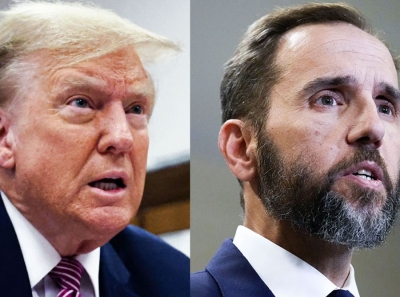Fossil phase-out: Berlin bending Europe to its will?
The EU summit on Thursday was dominated by a topic that was not even officially on the agenda: Germany’s opposition to the EU-wide agreement to ban new cars with combustion engines from 2035. Berlin has proposed that cars powered by e-fuels made from water and CO2 should be exempt from the ban. Most commentators are critical of Germany’s stance.
A stab in the back for the legislative process
The business paper Les Echos looks to Germany, torn between indignation and envy:
“Berlin’s demand has already been rejected twice by the EU Parliament and once by the member states. By torpedoing the legislative process in this way, Germany runs the risk of disinhibiting other countries regarding the defence of their individual interests and blocking the European machinery even more. One might resent this. But one might also believe that the showdown against Germany would be more balanced if France had preserved its financial power through better management of its budget. Berlin’s chances of saving its industry are good. Ours are not.”
New alliances
Lidové noviny is pleased that Eastern and Western European EU countries have come together to form a blockade against the phasing out of the internal combustion engine:
“The cliché has been established that on fundamental issues the EU is divided into West and East, or into progressive Europeans and dirty post-communists. Now, apparently for the first time in the EU, countries like the Czech Republic can also rely on Germany to form a blocking minority. The Germans have no illusions that their cars will run on petrol forever, as they did in the days of Carl Benz. But they don’t want to throw away the technology only to have to import electric cars from China. No matter how it all turns out — we are at a turning point.”
Let Germany’s back-paddling be a warning
La Vanguardia calls for maximum consensus on climate policy:
“Berlin’s last-minute change of position is amateurish and has caused unease in several countries. Such a last-minute withdrawal from a joint agreement sets a dangerous precedent for future EU negotiations. ... This should serve as a warning to lawmakers to weigh more carefully the impact of measures on business and employment. We must strive for maximum balance. ... That is a guarantee of success.”
No time to lose
France and Germany are standing in the way of the the green transition, the Salzburger Nachrichten criticises:
“President Emmanuel Macron is obsessively trying to impose his own decision in favour of nuclear power on the entire European Union. ... And Olaf Scholz is letting his coalition partner, the FDP, have its way, which in a panic after losing five regional elections in a row is suddenly questioning a key element of the European green transition: the phasing out of climate-damaging car engines from 2035. ... We are running out of time to set the course for a carbon-free and sustainable future. Neither nuclear power plants nor combustion engines are part of it.”









